This example will demonstrate how to create an arbitrary waveform from binary data created using MATLAB code. Use this code with its detailed comments to understand how binary data should be sent to the Tabor AWG waveform memory. It is a good programming example for all other languages, because the same procedure that applies here, will apply to other programming languages as well.
If you haven’t been acquainted with controlling Tabor AWGs using MATLAB’s Instrument Control Toolbox, please refer to Tabor’s website for the previous tutorials in the series ““How to Control Tabor AWGs with MATLAB”:
- ‘Getting started’.
- ‘Using SCPI commands’.
- ‘Using the IVI driver’.
In order to control instruments using MATLAB, the instrument control toolbox is required. Please note that the Instrument Control Toolbox is an additional application that needs to be added. For more information you can visit the Mathworks website.
For this tutorial, we will use MATLAB version R2014a 32bit and a USB interface. To ensure you successfully established all the necessary settings for remote control over the Tabor instrument using LAN/USB/GPIB, please go over the connectivity tutorials on the Tabor’s website.
The ‘SeqMasterSlave.m’ itself as well as the waveforms (in the ‘waves’ folder), can be found after installation of the latest Tabor IVI driver through this path on your computer:
‘C:\Program Files (x86)\IVI Foundation\IVI\Drivers\wx218x\Examples\Matlab’.
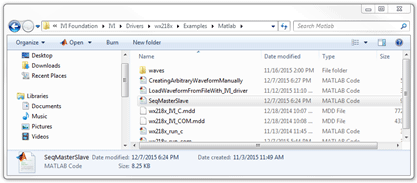
Here is the full code used to create a 500KHz sine wave using Tabor WX2184C:
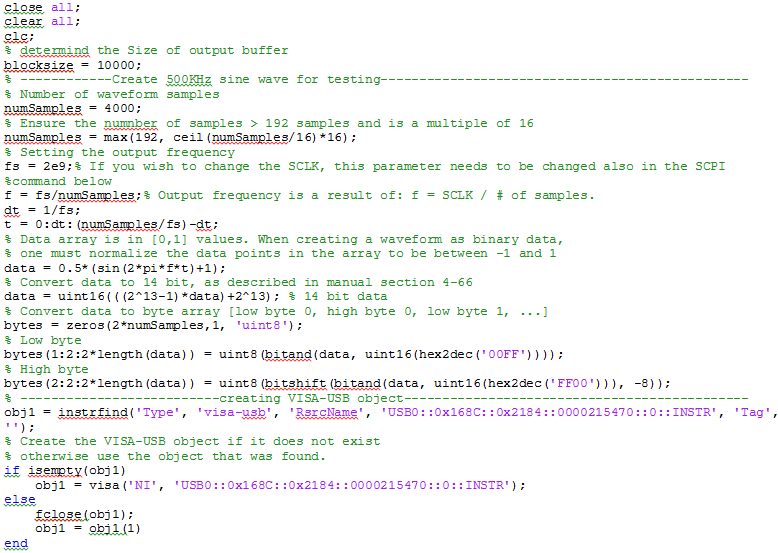
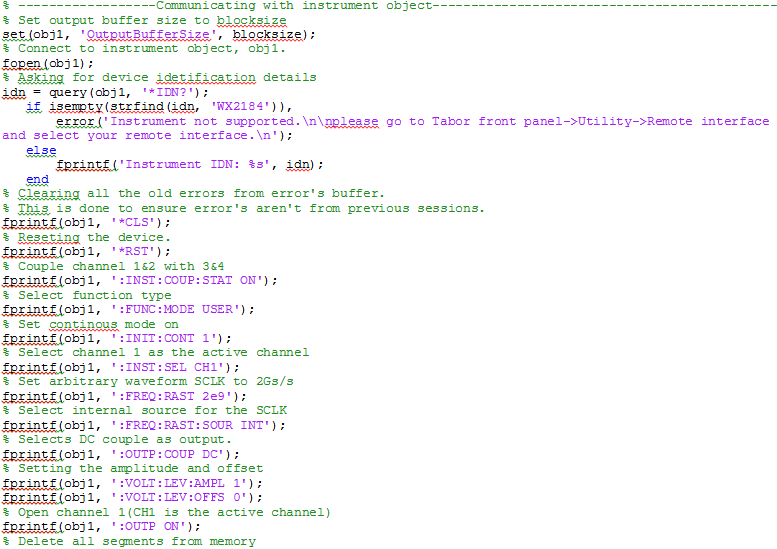
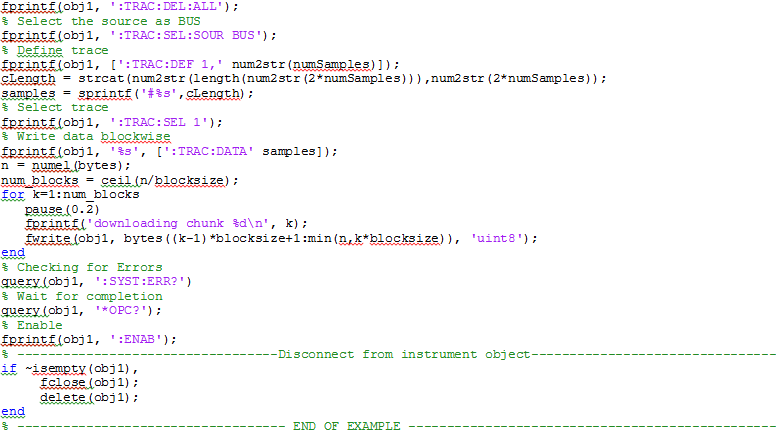
As can be seen on scope, a 500KHz sine wave was created:
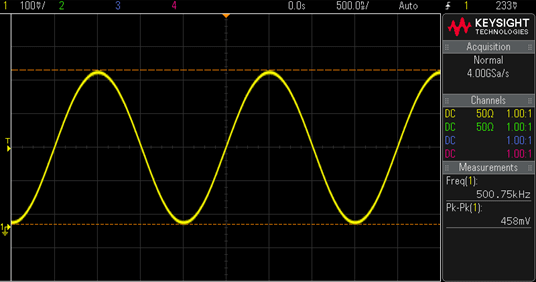
The outputted sine wave.
For More Information
For more of Tabor’s solutions or to schedule a demo, please contact your local Tabor representative or email your request to [email protected].